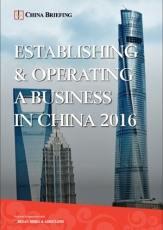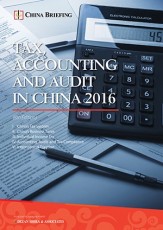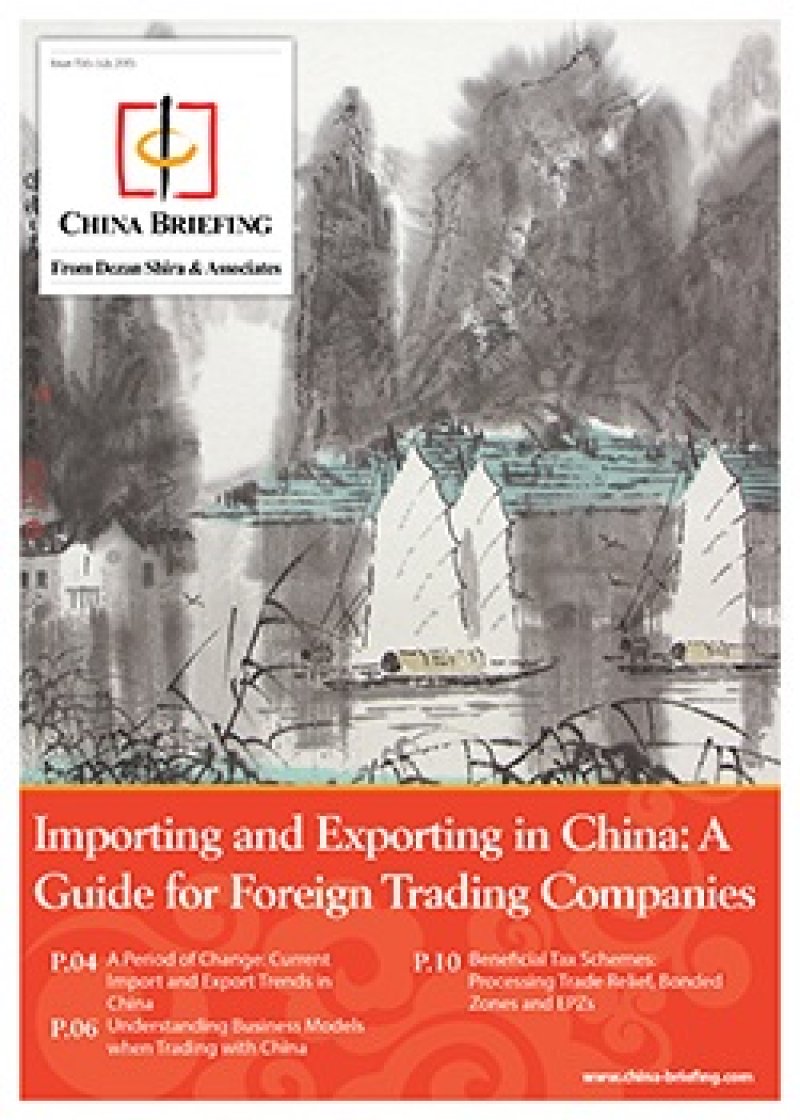China Regulatory Brief: Consumer Tax Reform and Notice on Employment Subsidy for the Disabled
Consumer Tax Reform to be Launched
Consumer tax is now undergoing a period of change following China’s VAT reform. Its scope of taxation is set to be adjusted, and the collection process and tax rate is expected to be accelerated. Certain high pollution and high energy consumption products, high-class consumer goods, as well as high-class services, will be included into the scope of collection of consumer tax. The collection process will transfer from a production process to a retail process. In addition, income from consumer tax is likely to be shared among local authorities from the central government.
Entrepreneurship and Internet to Boost Employment during the 13th Five-Year Planning Period
The Outline of the 13th Five-Year Plan pledges to implement an ‘employment first strategy’ and enact proactive employment policies in order to create more job opportunities. It will also address employment conflicts, encourage entrepreneurship-driven employment, and do more to increase better quality employment. For example, the service sector contributes 20 percent more to employees than the industry sector, and the plan aims to even out these proportions. In 2014, tertiary industries accounted for 40.6 percent of China’s total employment with around 310 million people. By the end of the 13th Five-Year Planning period, the service sector will potentially account for 50 percent of total employment.
New Notice to Provide Occupational Training and Employment Subsidy for Disabled Persons
According to a new Notice, occupational training for disabled persons will be added to the existing system for life-long occupational training. Qualified disabled persons will now be eligible to benefit from the employment subsidy fund, the occupational training subsidy, and occupational skills appraisal subsidy. Co-released by the Ministry of Human Resources & Social Security (MOHRSS) and China Disabled Persons Federation (CDPF), the Notice on Implementing the Disabled Persons’ Occupational Skills Improvement Plan will run from 2016 to 2020.
Certain Industries to Require VAT Invoices for Reimbursements
The State Administration of Taxation (SAT) has announced a pilot program on business tax implementation in light of the recent VAT reform. Under the Notice, those in the construction, real estate, finance, and life service industries who previously paid business tax will switch to paying VAT. Special VAT invoices are required for deductions. The following items will be deductible at the stated rates:
- Office supplies/electronic consumables – 17 percent
- Vehicle leasing – 17 percent
- Water and power expenses – 13 percent and 17 percent, respectively
- Housing leasing – 11 percent
- Real estate management – 6 percent
- Postal and telecommunication fees – 11 percent
- Meeting/training fee – 6 percent
Deduction will not be permitted for travel expenses (excluding accommodation), collective benefit fees, individual consumption, catering, purchases of tax-free items, or in any cases in which a VAT invoice was not obtained. For accommodations, individuals must provide hotel providers with the same information as for a business tax invoice, as well as enterprise name, taxpayer ID, address, telephone, account opening bank and account number. However, there is no requirement to provide the certifying materials.
|
Asia Briefing Ltd. is a subsidiary of Dezan Shira & Associates. Dezan Shira is a specialist foreign direct investment practice, providing corporate establishment, business advisory, tax advisory and compliance, accounting, payroll, due diligence and financial review services to multinationals investing in China, Hong Kong, India, Vietnam, Singapore and the rest of ASEAN. For further information, please email china@dezshira.com or visit www.dezshira.com. Stay up to date with the latest business and investment trends in Asia by subscribing to our complimentary update service featuring news, commentary and regulatory insight. |

 Establishing & Operating a Business in China 2016
Establishing & Operating a Business in China 2016
Establishing & Operating a Business in China 2016, produced in collaboration with the experts at Dezan Shira & Associates, explores the establishment procedures and related considerations of the Representative Office (RO), and two types of Limited Liability Companies: the Wholly Foreign-owned Enterprise (WFOE) and the Sino-foreign Joint Venture (JV). The guide also includes issues specific to Hong Kong and Singapore holding companies, and details how foreign investors can close a foreign-invested enterprise smoothly in China.
 Tax, Accounting, and Audit in China 2016
Tax, Accounting, and Audit in China 2016
This edition of Tax, Accounting, and Audit in China, updated for 2016, offers a comprehensive overview of the major taxes that foreign investors are likely to encounter when establishing or operating a business in China, as well as other tax-relevant obligations. This concise, detailed, yet pragmatic guide is ideal for CFOs, compliance officers and heads of accounting who must navigate the complex tax and accounting landscape in China in order to effectively manage and strategically plan their China-based operations.
Importing and Exporting in China: a Guide for Trading Companies
In this issue of China Briefing, we discuss the latest import and export trends in China, and analyze the ways in which a foreign company in China can properly prepare for the import/export process. With import taxes and duties adding a significant cost burden, we explain how this system works in China, and highlight some of the tax incentives that the Chinese government has put in place to help stimulate trade.
- Previous Article An Introduction to Doing Business in China 2016 – New Publication from Dezan Shira & Associates
- Next Article China Regulatory Brief: Contemporaneous Transfer Pricing Documentation Rules & 2016 Suggested Salary Levels











